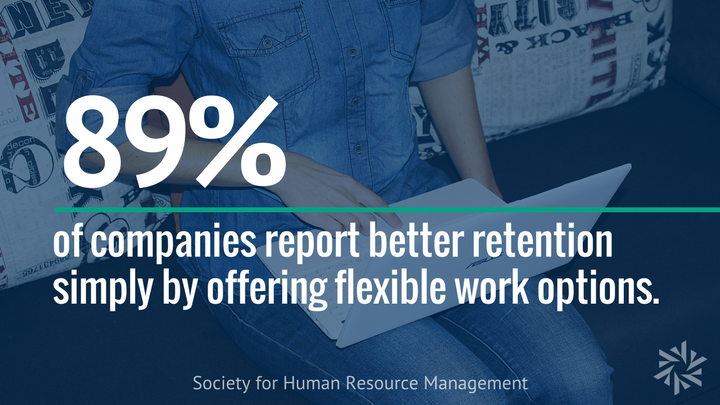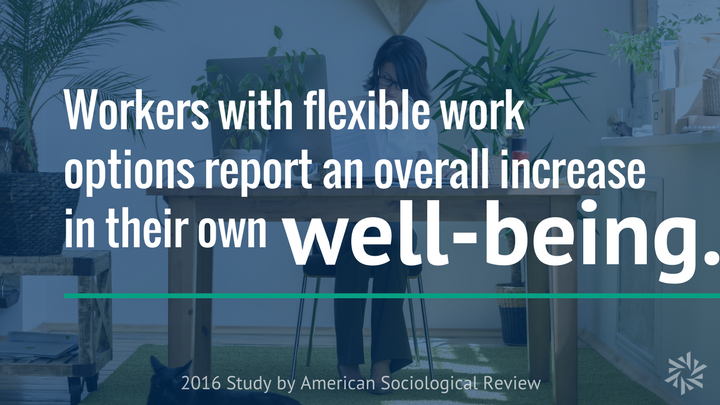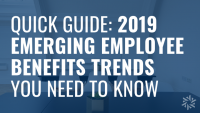Defining Work Differently
Technological advances and flexibility in the workplace have redefined the workday for many organizations and their employees. Having a flexible working environment means that your organization defines “work” differently and, as a result, new guidelines are established for when, where and how employees get tasks done. This also means that results are not gauged by how much face time employees put in at the office; their work is reviewed based on its quality and whether it gets done.
For employees, flexibility allows for an easier time managing work and family obligations. It allows individuals to engage in their roles as a professional, parent, school board member, coach, avid exerciser and/or homemaker all at the same time. Allowing workplace flexibility is a great marketing tool for the company and a solid way to recruit and retain talented employees.
Types of Flexible Working Arrangements
There are many types of flexible working arrangements being implemented across the nation which include:
Part-time employment (reduced work hours)
Flexible scheduling (employees are available within core hours during the day, but may vary the times they arrive in the morning and leave in the afternoon)
Telecommuting (working from a remote location)
Compressed workweeks (working a full schedule in fewer than five days)
Phased return-to-work from leave (gradually increasing the number of hours worked after taking a leave of absence from work)
Summer hours (reducing work hours during summer months)
Phased retirement (gradually decreasing the number of responsibilities and hours worked)
Virtual work (working entirely through an electronic system without a formal work schedule or location)
Hoteling (employees share a workspace because they are only in the office for a portion of the week)
Benefits of Flexibility
Many companies have had a lot of success implementing flexible arrangements in the workplace. For companies with employees who are no longer forced to come to the office and do not have set work hours, turnover has declined and employee engagement has increased. These companies also received the following benefits from offering a flexible working environment:
Increased retention
Increased productivity
Enhanced recruiting success
Recruiting capable employees is easier
Improved morale
Reduced stress
Employees are more accessible throughout the day
Reduced expenses for real estate costs
Reduced carbon footprint

Creating a Successful Program
Developing a program to make your workplace more flexible is simple and requires minimal or no resources.
Create a link between flexibility and your organization’s goals. Determine how existing and future flexibility plans will align with your current and future company goals.
Look at your current flexible work schedule offerings—who is eligible, how the program is used, how the program is administered, and what is expected of management and employees.
Determine how flexible you want to be. You will need to balance corporate guidelines, individual needs, management desires, etc.
Enlist management personnel to promote and administer flexible working arrangements. These people should have the training and tools to do so properly.
Communicate with your employees about flexible arrangements as part of your total benefits offerings.
Link flexible arrangements to your business results by creating a measurement system that gauges that connection.
Sell the program to senior executives by highlighting how the program can positively benefit your bottom line. They could also utilize the flexible program to show other employees that flexibility will not negatively affect their careers.

As baby boomers retire and younger generations enter the workforce, employers have to be more adaptable to their busy schedules. Employers are finding that some workers may not like a traditional schedule, elder care responsibilities require greater flexibility and parents insist that they have more time with their families. Furthermore, as the labor market continues to tighten and unemployment rates remain down, employees are going to look at incentives such as flex workplaces as an advantage when deciding to make a career change or stay with an employer. Compensation is no longer the lone motivating factor for employees. According to the Deloitte 2016 Millennial survey, flexible working arrangements support greater productivity and employee engagement while enhancing personal well-being, health, and happiness.
For more HR Resources check our Benefit Resource Center. Looking for more from your benefits broker? Contact Austin today to find out more about how we’re Simplifying HR.



